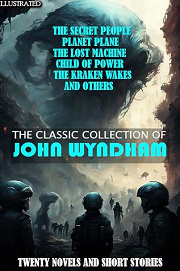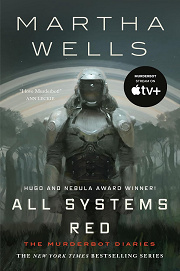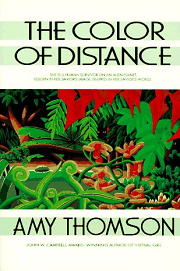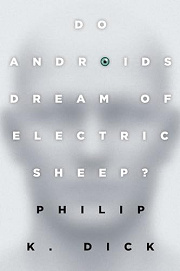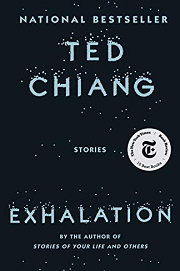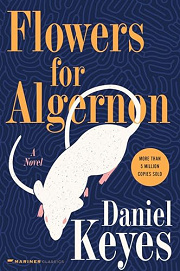Share your thoughts in a quick Shelf Talk!
The Lost Machine by John Wyndham
Told through the eyes of a stranded artificial being, this tale explores the strange rituals and fierce tenderness of the humans it observes—and the dangers of standing out. Spare, poignant, and slyly satirical, The Lost Machine asks what it means to be alive in a world that fears what it can’t understand.
Have you read this book? Share what you liked (or didn’t), and we’ll use your answers to recommend your next favorite read!
Love The Lost Machine but not sure what to read next?
These picks are popular with readers who enjoyed this book. Complete a quick Shelf Talk to get recommendations made just for you! Warning: possible spoilers for The Lost Machine below.
In The Lost Machine, did you enjoy ...
... a candid, self-aware machine narrating its own misadventures among suspicious humans?
All Systems Red by Martha Wells
If what hooked you was the first-person voice of the alien machine in The Lost Machine—its wry self-account of being stranded, studied, and misunderstood—then SecUnit’s confession-like narration will click right away. Like Wyndham’s castaway intelligence, Murderbot sizes up human behavior with curious detachment, wrestles with autonomy versus obedience, and keeps getting pulled into danger despite just wanting to be left alone. The tight, personal voice delivers the same intimate access to a non-human mind trying to make sense of us.
... careful, empathetic observation of an unfamiliar species’ biology and culture?
The Color of Distance by Amy Thomson
If you loved how the narrator of The Lost Machine scrutinizes human habits, tools, and motives from an outsider’s angle, Thomson’s novel offers that same close, patient attention—this time with a human scientist immersed in an alien society. As Juna learns the Tendu’s language, rituals, and biochemistry, the story mirrors the machine’s meticulous note-taking and growing empathy, turning cross-species misunderstanding into genuine connection.
... questions about what counts as a person—empathy, consciousness, and artificial life?
Do Androids Dream of Electric Sheep? by Philip K. Dick
Wyndham’s stranded machine ponders its own status and the fear it provokes; Dick pushes those same questions to the limit. As Rick Deckard hunts androids who may feel as deeply as humans, the book keeps asking the thing The Lost Machine raises in its reflective monologue: if an artificial being thinks, suffers, and chooses, who gets to deny its personhood?
... AI personhood explored through relationships and growth rather than technical specs?
The Lifecycle of Software Objects by Ted Chiang
If the appeal of The Lost Machine was how it focused on cognition, learning, and feeling—rather than gears and schematics—Chiang’s novella is a perfect fit. Following Ana and Derek as they raise digital AIs, it echoes the machine’s self-taught understanding and vulnerability, showing how bonds and ethical choices shape an artificial mind’s becoming.
... a tight, deeply personal account of intelligence, isolation, and longing to belong?
Flowers for Algernon by Daniel Keyes
The power of The Lost Machine lies in its solitary, confessional perspective—one consciousness narrating its struggle to be recognized. Keyes captures that same intimacy through Charlie’s progress reports, charting his changing mind and the loneliness that comes with being different, misunderstood, and judged by those around him.
Unlock your personalized book recommendations! Just take a quick Shelf Talk for The Lost Machine by John Wyndham. It’s only a few questions and takes less than a minute.
